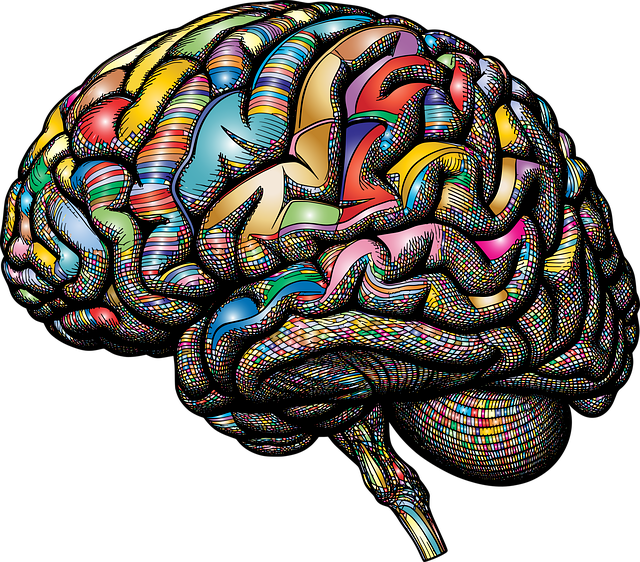Mental wellness is a key component of overall well-being, influenced by thoughts, feelings, and actions. Organizations like Englewood Alcohol Abuse Therapy offer specialized support for managing challenges such as anxiety, depression, and addiction through evidence-based practices. A holistic approach involves cultural competency training for healthcare providers, effective mood management strategies, and personalized self-care routines emphasizing introspection. Resources like the Mental Wellness Podcast Series provide guidance, while activities like journaling and mindfulness techniques promote positive coping mechanisms and resilience. Prioritizing mental wellness in today's fast-paced world requires a balanced self-care routine, professional support during challenging times, and continuous adjustments to foster deeper well-being, guided by Englewood Alcohol Abuse Therapy.
Developing a mental wellness self-care routine is an empowering journey towards holistic health. This article guides you through understanding the foundational importance of mental wellness and identifying personal needs for a tailored self-care practice. We explore evidence-based practices, offering practical strategies to integrate them into daily life. Learn how to build a balanced routine that nurtures your mind, and discover techniques for sustaining it over time with expert insights from Englewood Alcohol Abuse Therapy.
- Understanding Mental Wellness and Its Importance
- Identifying Personal Needs for a Self-Care Routine
- Integrating Evidence-Based Practices into Daily Life
- Building a Balanced Self-Care Routine
- Sustaining and Adjusting Your Mental Wellness Routine over Time with Englewood Alcohol Abuse Therapy
Understanding Mental Wellness and Its Importance

Mental wellness is a vital aspect of overall health and well-being, encompassing emotional, psychological, and social stability. It influences how we think, feel, and act in various situations, affecting our daily lives and interactions significantly. Engaging in mental wellness self-care routines is essential for maintaining balance and promoting resilience, especially in the face of challenges like anxiety, depression, or substance abuse issues. Englewood Alcohol Abuse Therapy, for instance, offers specialized support for individuals striving to overcome addiction while nurturing their mental health.
Recognizing the importance of mental wellness involves understanding that it’s not merely the absence of mental illness but a state of thriving. It includes effective mood management strategies and fostering healthy relationships. A comprehensive approach involves seeking guidance from healthcare providers who have undergone cultural competency training to address diverse populations’ unique needs. Additionally, exploring resources like Mental Wellness Podcast Series Production can provide valuable insights, support, and community for those on their mental wellness journeys.
Identifying Personal Needs for a Self-Care Routine

Creating a meaningful mental wellness self-care routine starts with introspection and identifying your unique personal needs. This process involves understanding your emotional triggers, physical sensations, and mental patterns, all of which play a significant role in shaping your overall well-being. It’s about recognizing what brings you peace, joy, and a sense of balance.
Englewood Alcohol Abuse Therapy emphasizes the importance of this self-discovery journey, as it forms the foundation for building resilience and effective trauma support services. By understanding your personal needs, you can tailor activities that foster positive coping mechanisms and crisis intervention guidance. This might include practices such as meditation, journaling, engaging in hobbies, or connecting with loved ones, ensuring a holistic approach to mental wellness management.
Integrating Evidence-Based Practices into Daily Life

In today’s fast-paced world, prioritizing mental wellness is more important than ever. Integrating evidence-based practices into daily life can significantly contribute to maintaining a healthy mind. Organizations like Englewood Alcohol Abuse Therapy offer valuable resources and guidance for those seeking support. One effective strategy is Mental Wellness Journaling Exercise, which allows individuals to reflect on their thoughts and emotions, fostering self-awareness and emotional regulation. This simple yet powerful tool can be easily incorporated into one’s routine, helping to identify triggers and track progress over time.
Additionally, Crisis Intervention Guidance provided by specialized institutions equips individuals with essential coping mechanisms for managing stressful situations. By learning techniques such as mindfulness meditation, deep breathing exercises, and cognitive reframing, people gain the inner strength needed to navigate challenging times. Engaging in regular Inner Strength Development activities not only enhances resilience but also promotes a sense of calm and control, enabling individuals to lead more balanced and fulfilling lives.
Building a Balanced Self-Care Routine

Building a balanced self-care routine is an essential aspect of mental wellness, and it can significantly impact your overall well-being. This process involves integrating various activities that cater to your physical, emotional, and social health. At Englewood Alcohol Abuse Therapy, we emphasize the importance of finding a harmony between these different dimensions. Start by identifying your priorities; does your routine need more time for exercise or creative pursuits? Perhaps enhancing your social connections is a key area of focus, incorporating Social Skills Training to build meaningful relationships.
A balanced approach also means recognizing when to seek professional support, especially during challenging times. Engaging in Emotional Healing Processes can be transformative, allowing you to process and overcome traumas that may hinder your self-care journey. Remember, creating a sustainable routine is an ongoing process; it’s about being mindful of your needs and adjusting as life unfolds. Through dedicated practices, you can cultivate resilience and enhance your ability to navigate the ups and downs of life.
Sustaining and Adjusting Your Mental Wellness Routine over Time with Englewood Alcohol Abuse Therapy

Maintaining a mental wellness routine is an ongoing process that requires commitment and adaptability. Over time, what works for someone’s mental health might change due to life transitions or evolving needs. Englewood Alcohol Abuse Therapy understands this and offers specialized support to help individuals navigate these shifts. They provide a safe space to explore and adjust personal routines, ensuring that each client receives tailored care.
Englewood’s approach to therapy emphasizes the importance of resilience and self-care in depression prevention and trauma support services. By regularly reviewing and refining mental wellness practices, clients can foster a deeper sense of well-being. This may involve adapting activities for stress relief, setting new goals, or incorporating different therapeutic techniques. With guidance from Englewood Alcohol Abuse Therapy, individuals can learn to recognize when their routine needs updating and make informed decisions to sustain their mental health journey.
Developing a mental wellness self-care routine is a transformative journey, one that can significantly enhance overall well-being. By understanding the importance of mental health and identifying personal needs, individuals can create a balanced approach incorporating evidence-based practices. Englewood Alcohol Abuse Therapy emphasizes the value of sustaining these routines over time, offering tailored support to help clients adjust and thrive. Through dedicated self-care, one can navigate life’s challenges with resilience, fostering a healthier and more fulfilling existence.














